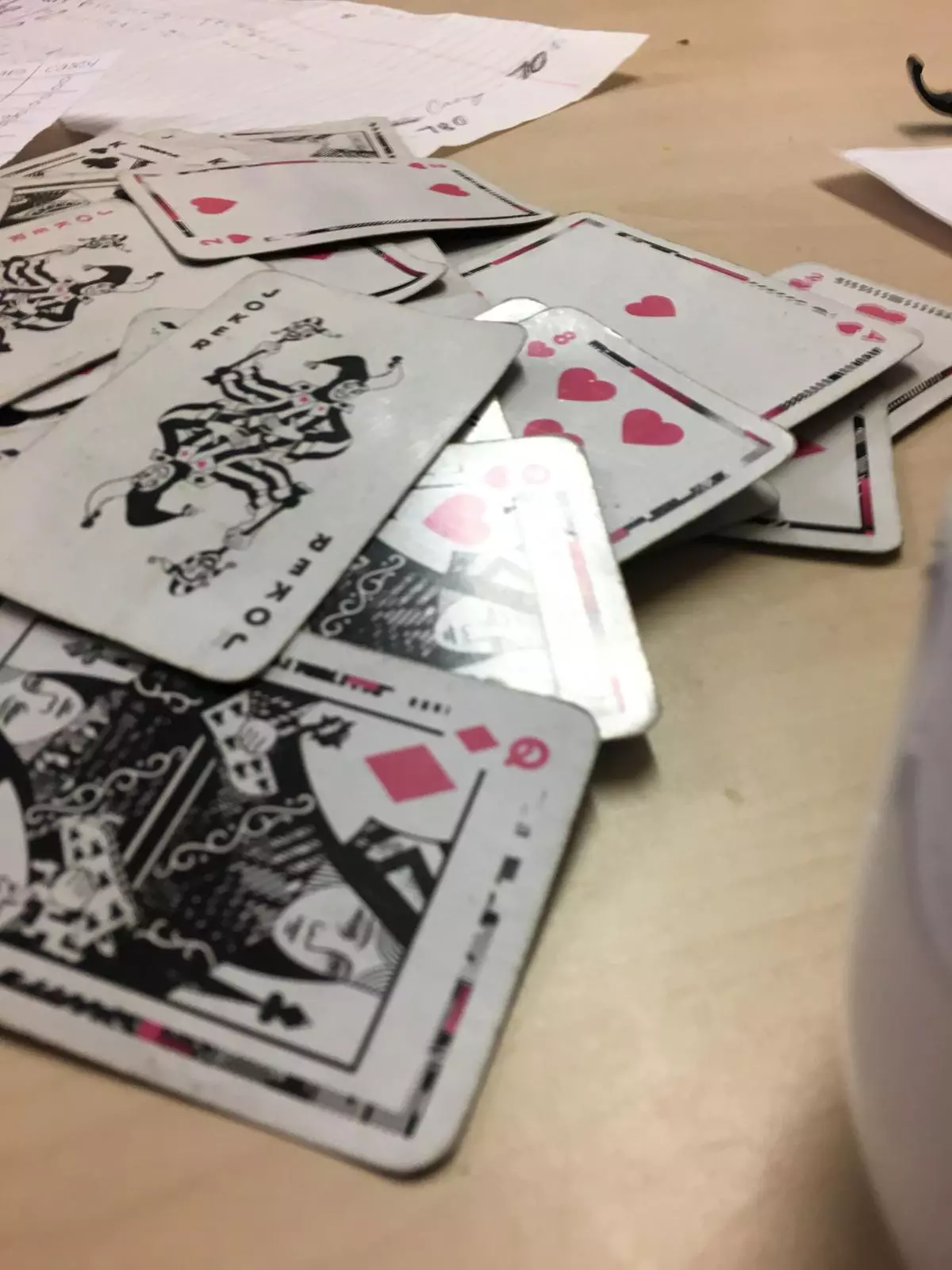The Only Thing You Need to Pack When Studying Abroad


Packing can be Challenging
Before leaving for my semester abroad, I had no clue what to pack.
Do I bring my pillow? What about my kavu? Am I going to need my favorite book? Should I take three or four pairs of shoes?
The day I arrived in Cardiff, Wales, I honestly didn’t know what I had ended up with and what I had left at home. When I opened my one and a half suitcases, I was shocked to see I had brought,not one, not two, but three decks of playing cards. That’s right; in the midst of the packing and repacking mess, I had chosen not to bring my umbrella to one of the rainiest countries in the world, but to pack, instead, three decks of cards. Little did I know, at the time, that choice my subconscious had made was the best decision I made the entire semester abroad. Meeting new people is one of the most fun and most difficult things I’ve been challenged to do. When I am given the opportunity to meet someone new, I try really, really hard to get to know them. Sometimes I think I try a little too hard. While I would call myself a people person, I still get fairly nervous–my stomach knotting, my palms sweating–when faced with a new face. I want to know everything about the person I am meeting and hope they feel the same way toward me. More often than not, I either come off as standoffish or intimidating, hitting on the extreme sides of the spectrum.
Breaking the Ice
When I first met my flatmates, I forgot their names within seconds of hearing them. Instead of asking them their names over and over again, I tried thinking of ways I could get them to say their names without them knowing I had already forgotten them (even though we were all basically in the same boat). For the most part, I just wanted to be able to talk to one another, hoping a name would drop here and there. But even that was proving to be difficult. The eight of us were having a bit of a difficult time getting past the small talk phase. With all of the name games and icebreakers I’ve played as the Orientation Chair at my home university and summer camps I’ve been a counselor at, I could not come up with a way to get us to connect. Later that week, I had an idea; a card game. I know all kinds of card games for all kinds of people. I know kiddy card games like War and Go Fish, computer card games like Solitaire and Hearts, and other lesser known card games like Mau and Golf. I know fast-paced games and long, drawn out games; card games to play in groups, in pairs, and by myself. I know a couple magic tricks and lots of other ways to entertain people using a deck of cards. When it finally hit me, I brought out a deck of cards, one night after dinner, and asked if anyone wanted to play a game.
Finding Common Ground
At first, not everyone wanted to play; some were just going to watch, afraid they wouldn’t know the game. I quickly explained the (seemingly basic to me) rules to those in the room, but, soon after, even those who had said they would play were a little hesitant. On the spot, I had to figure out a way to explain the rules of a fairly complex game of contract rummy in a way that would sound fun and intriguing to, not only beginner card players, but people I didn’t even know the names of yet. “Well–um–first…” I stumbled. I still remember feeling all of the unease in the room mixed with a little excitement. I slowly opened myself up to try and communicate better with the people I would be spending the rest of the semester with. And what do you know? I did it! I began with the basics–“The point of the game is to get rid of all of your cards before anyone else”–and ended asking if anyone had any questions. The first question came from a flatmate whose name I couldn’t remember, but was determined to learn: “This sounds fun! Can we get started?” Shortly after, we played well into the night. Somewhere in between the nervous heartbeats, the adrenaline rushes, the laughs, and the snacks, I had learned not only everyone’s name, but a little something about each amazing human I had the opportunity to spend three months living with. After that first night, we played contract rummy every day, twice a day. We learned new card games to play, too. Anytime someone new came to visit, someone would pull out the cards. The various decks of cards in the flat had turned into a staple for each and every one of us. Even as I travelled around Europe, I would take a deck to play with those at the hostel I was staying at to start a conversation and a connection. The cards did more than provide a filler for awkward silences; they gave people a way to talk to one another in a non-stressful manner, a reason to introduce themselves, and a thing to bond over. I can’t imagine my study abroad experience without a deck of cards.
Casey H. | Emory and Henry College | Cardiff University Partnership in Wales | Fall 2016